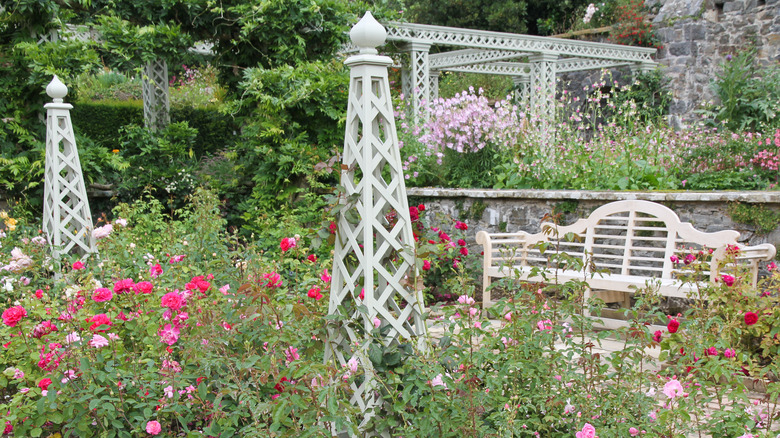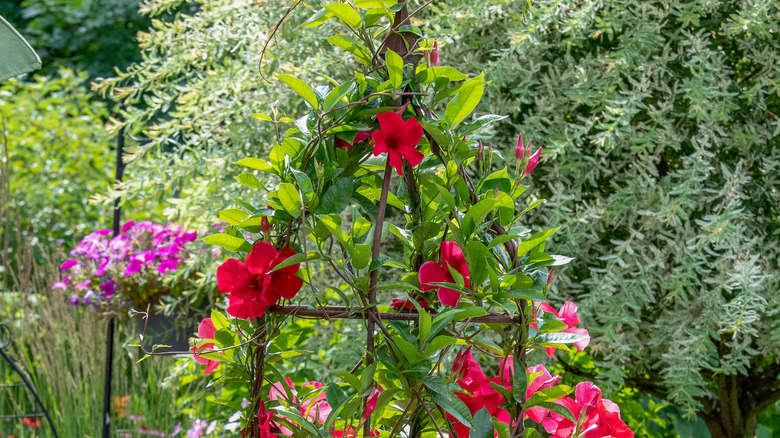What Is An Obelisk And Why Should You Add One To Your Garden?
The original obelisks were tall stone pillars found outside Egyptian temples. Today, these graceful, tapering structures can be used in the garden both as standalone focal points and for planting. They are sometimes referred to as tuteurs, though purists say an obelisk has four straight or gently sloping sides topped with a pyramid, whereas a tuteur has three sides that each slope to a point at the top. Modern designs may also have domed tops.
When used solely for ornamental purposes, obelisks are often made of cast stone; a type of concrete that closely resembles the natural material. They look great with formal borders and make an eye-catching centerpiece to a water feature. More often though, obelisks serve as open frameworks constructed from steel or wood, with trellis sides to support plant growth. There are different designs to suit all tastes, some available as easy-to-assemble kits. It is also possible to make them out of willow, and if you can find a supply, this might make a very rewarding DIY project.
Obelisks can support both flowers and food
An obelisk can be placed on a border or combined with a planter. Because the latter is free-standing, it provides an easy way to introduce height to any part of the yard. This might be purely for decorative purposes, or several could be combined to create a divider or screen.
Many flowering plants are happy to scamper up the trellis sides of obelisks, making for a colorful feature that will also help attract beneficial pollinators. Obelisks can also be used for vegetables and fruit. Tomatoes, cucumbers, pole beans, and spinach are among those that will thrive on a trellis. You can also grow vines for grapes, and try exotics like passion fruit (Passiflora incarnata). Using an obelisk in this manner doesn't only make produce easy to harvest, but it can also free up space in the plot for edible plants that prefer to be on the ground.
Finally, consider using an obelisk as a feeding station for birds. The framework is a handy structure for hanging a wide variety of feeders and by varying the contents, you can bring color and birdsong into the yard all year round.

